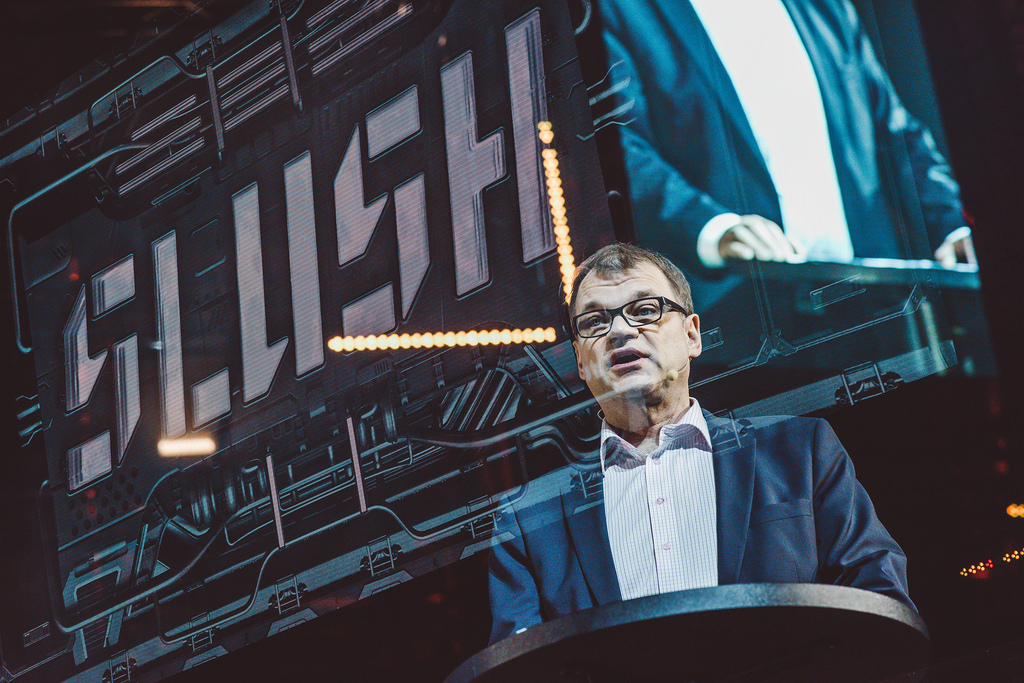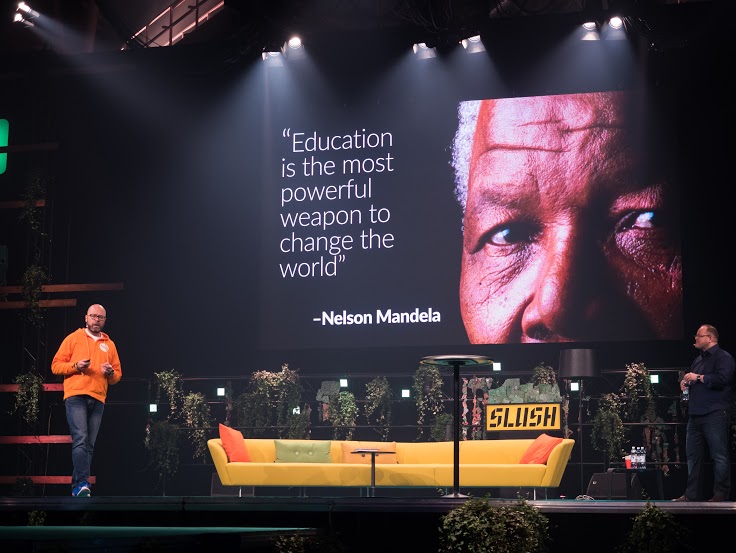The Slush event brings some of the biggest names in technology and innovation to Finland every November.
The Prime Minister of Finland, Juha Sipilä, opened the 2015 Slush event in style. Preceded by flashing lights, lasers and a throbbing bass track, he welcomed over 15,000 people from over 100 countries to the largest high-tech and startup event in northern Europe.
“Everyone in Finland is proud of Slush,” he says. “It is an amazing success story. Slush is the hottest event in the cold North.”

“Everyone in Finland is proud of Slush,” says The Prime Minister of Finland Juha Sipilä.Photo: Sami Välikangas
Some of the largest high-tech companies in the world attend Slush, such as Samsung, Google and Nokia, but the heart of the event has always been innovative startups. Hundreds of investors come to Helsinki to find great young companies.
This year several different industries are in focus, such as cleantech, gaming and biotech, but particular attention is on education technology. Combining the two national strengths of education and software has created many startups which aim to change how we learn.
Music education
Ilkka Räsänen, CEO of Mubik, opens up his application and Van Halen’s iconic song “Jump” begins to play. The game is simple: you follow along with the melody, pressing colour-coded buttons in time with the song.
“It is a cognitive music game,” Räsänen explains. “You learn as you play.”
He shows a Youtube video of a class of eight year-olds acting as an orchestra, each playing different instruments on their iPads.
“The kids made this song,” he says. “This was their first experience programming as well as their first experience playing an instrument!”
Mubik is already an innovative method of music education, but Räsänen hopes to find investors at Slush to help them expand their offering globally.
Emerging countries

Funzi focuses on entrepreneurship and personal development, as well as information for asylum seekers in Europe. “Europe has an opportunity to educate people coming,” says CEO Tero Salonen.Photo: Funzi
Funzi is a small team which already has had a big impact. Their goal is to help educate people of emerging countries using mobile technology. Funzi’s first courses focus on entrepreneurship and personal development, as well as information for asylum seekers in Europe.
“Europe has an opportunity to educate people coming,” says CEO Tero Salonen. “It would be a crime against humanity if that opportunity is not used.”
Funzi teams with educational content providers and sees themselves as publishers using a mobile platform.
“Emerging markets don’t use wires,” Salonen continues. “Mobile devices are the key to delivery. That is a better way to educate people.”
By David J. Cord, November 2015



